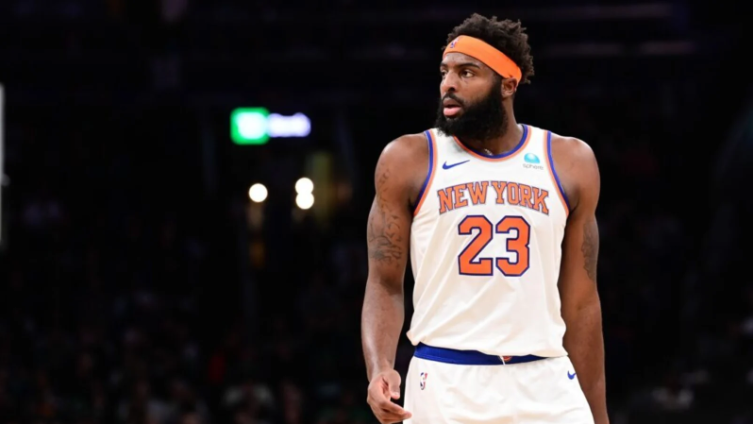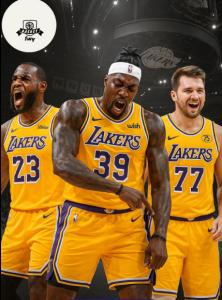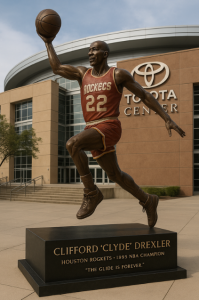
As the New York Knicks adjust to life after trading for Karl-Anthony Towns, discussions about potentially trading Mitchell Robinson have surfaced. While Towns provides significant offensive talent, letting go of Robinson might create more issues than it resolves. Despite injury concerns and trade speculation, Robinson’s unique skill set remains vital to the Knicks’ performance.
NBA Business: Knicks Risk a Major Mistake with Robinson Trade
**Defensive Strength and Rebounding Impact**
Robinson is arguably the Knicks’ most impactful defensive player. At 7 feet tall with a 7-foot-4 wingspan, he has consistently provided rim protection and elite shot-blocking. His performance in the 2023-24 playoffs, particularly against former MVP Joel Embiid, underscored his defensive importance. Robinson’s presence forces opponents to reconsider their shot options in the paint. In contrast, while Towns offers offensive versatility, his defensive weaknesses are well-known. Depending on him to anchor the defense could leave the Knicks exposed against dominant centers like Embiid or Nikola Jokić.

Robinson is also a standout offensive rebounder, tying for the league lead in offensive boards per game. His ability to create second-chance opportunities is crucial for the Knicks’ scoring. Trading such a key rebounder could hinder their effectiveness on the boards, especially in close contests.
Lack of Suitable Replacement
Although Towns is a versatile player, he isn’t the ideal replacement for Robinson as a defensive center. Towns excels at spacing the floor and scoring, but expecting him to fill Robinson’s defensive role would be risky. Losing Robinson would strip the Knicks of a true rim protector, likely diminishing their defensive strength from last season. While Towns showed improvement on defense last year alongside Rudy Gobert, he thrived because of Gobert’s elite presence.
Moreover, with Robinson sidelined due to ankle injuries until December or January, the Knicks already have limited depth at center. Trading him would further reduce their options for defensive coverage early in the season, placing undue pressure on Towns. They have Jericho Sims and Precious Achiuwa as backups, but both lack the experience and size necessary for effective rim protection. To contend for a playoff spot, the Knicks must maintain their defensive identity, and Robinson is key to that.
Low Trade Value and Potential Returns
The market for Mitchell Robinson likely won’t yield the return the Knicks desire. His recent injury history has lowered his trade value. Any package involving Robinson is unlikely to bring back significant improvements for the team, as other franchises might hesitate to offer premium assets given his health concerns. His $14.3 million cap hit adds another layer of complexity to any trade, requiring teams to match contracts.
For the Knicks, trading Robinson for a low return would feel like a setback. Without acquiring a player of similar defensive quality or valuable draft assets, they would create a gap in their lineup that could take time to address. While it may be tempting to explore trades in the wake of the Towns acquisition, Robinson’s contributions far outweigh what they could potentially gain in return.
Continuity and Chemistry
As the longest-tenured player on the Knicks, Mitchell Robinson is a cornerstone of the team’s identity and defensive culture. His chemistry with teammates is invaluable. Robinson effectively plays his role without needing the ball, making him an essential complement to the Knicks’ offensive weapons.
Trading him, especially while he’s injured, would disrupt the continuity the team has built over recent seasons. His presence allows offensive stars to focus on scoring, knowing they have a reliable defensive anchor behind them. Robinson’s value extends beyond statistics; his understanding of the team’s system and relationships with teammates are irreplaceable assets.
Conclusion: A Robinson Trade Could Be a Mistake for the Knicks
While trading Robinson might seem like a way to explore new options, it risks leaving the Knicks vulnerable in areas where they have excelled. His defensive skills, rebounding prowess, and teammate chemistry make him an indispensable part of the roster. Even with the addition of Towns, Robinson’s presence is crucial for maintaining competitiveness on both ends of the court. Given his lower trade value, it ultimately makes more sense for the Knicks to keep Mitchell Robinson and continue benefiting from his essential contributions to their success.







